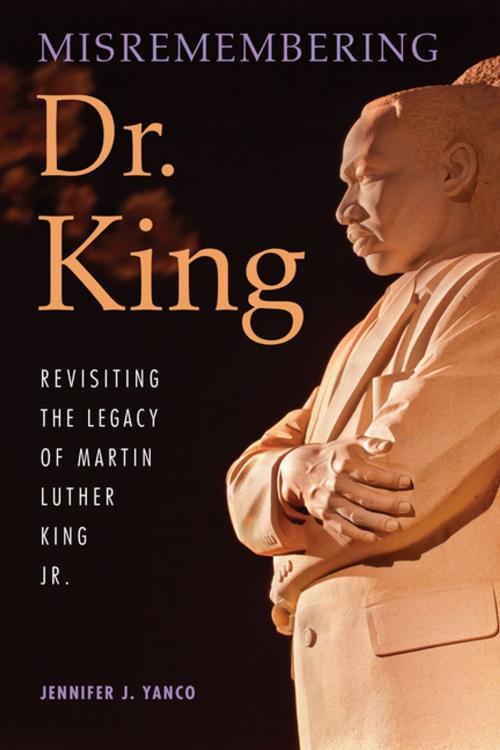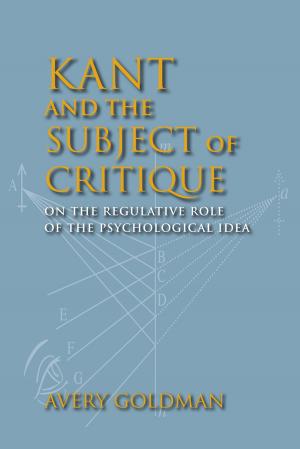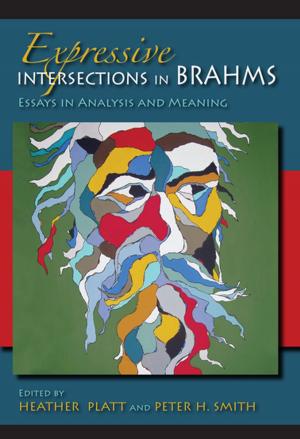Misremembering Dr. King
Revisiting the Legacy of Martin Luther King Jr.
Nonfiction, History, Americas, United States, 20th Century, Biography & Memoir, Historical| Author: | Jennifer J. Yanco | ISBN: | 9780253014245 |
| Publisher: | Indiana University Press | Publication: | February 27, 2014 |
| Imprint: | Indiana University Press | Language: | English |
| Author: | Jennifer J. Yanco |
| ISBN: | 9780253014245 |
| Publisher: | Indiana University Press |
| Publication: | February 27, 2014 |
| Imprint: | Indiana University Press |
| Language: | English |
We all know the name. Martin Luther King Jr., the great American civil rights leader. But most people today know relatively little about King, the campaigner against militarism, materialism, and racism—what he called the "giant triplets." Jennifer J. Yanco takes steps to redress this imbalance. "My objective is to highlight the important aspects of Dr. King’s work which have all but disappeared from popular memory, so that more of us can really 'see' King." After briefly telling the familiar story of King’s civil rights campaigns and accomplishments, she considers the lesser-known concerns that are an essential part of his legacy. Yanco reminds us that King was a strong critic of militarism who argued that the United States should take the lead in promoting peaceful solutions rather than imposing its will through military might; that growing materialism and an ethos of greed was damaging the moral and spiritual health of the country; and that in a nation where racism continues unabated, white Americans need to educate themselves about racism and its history and take their part in the weighty task of dismantling it.
We all know the name. Martin Luther King Jr., the great American civil rights leader. But most people today know relatively little about King, the campaigner against militarism, materialism, and racism—what he called the "giant triplets." Jennifer J. Yanco takes steps to redress this imbalance. "My objective is to highlight the important aspects of Dr. King’s work which have all but disappeared from popular memory, so that more of us can really 'see' King." After briefly telling the familiar story of King’s civil rights campaigns and accomplishments, she considers the lesser-known concerns that are an essential part of his legacy. Yanco reminds us that King was a strong critic of militarism who argued that the United States should take the lead in promoting peaceful solutions rather than imposing its will through military might; that growing materialism and an ethos of greed was damaging the moral and spiritual health of the country; and that in a nation where racism continues unabated, white Americans need to educate themselves about racism and its history and take their part in the weighty task of dismantling it.















